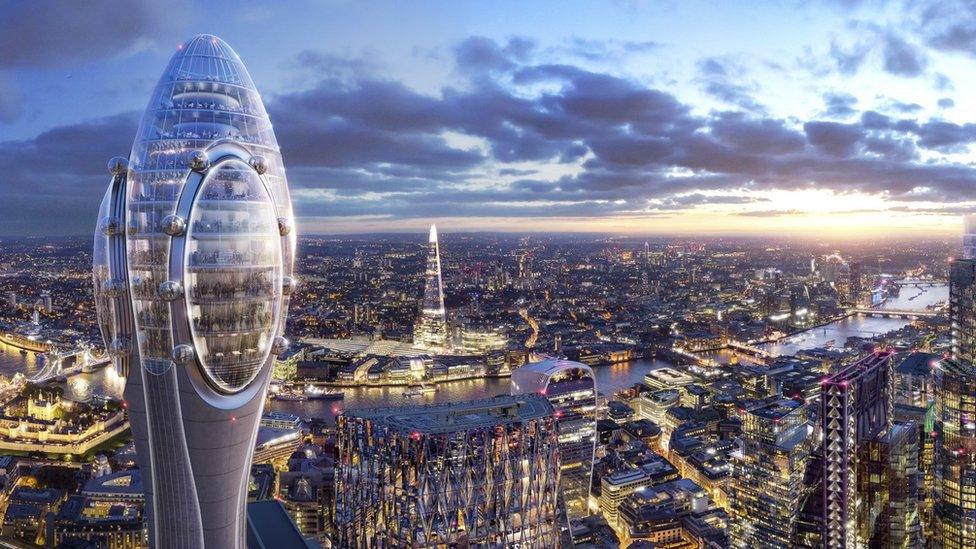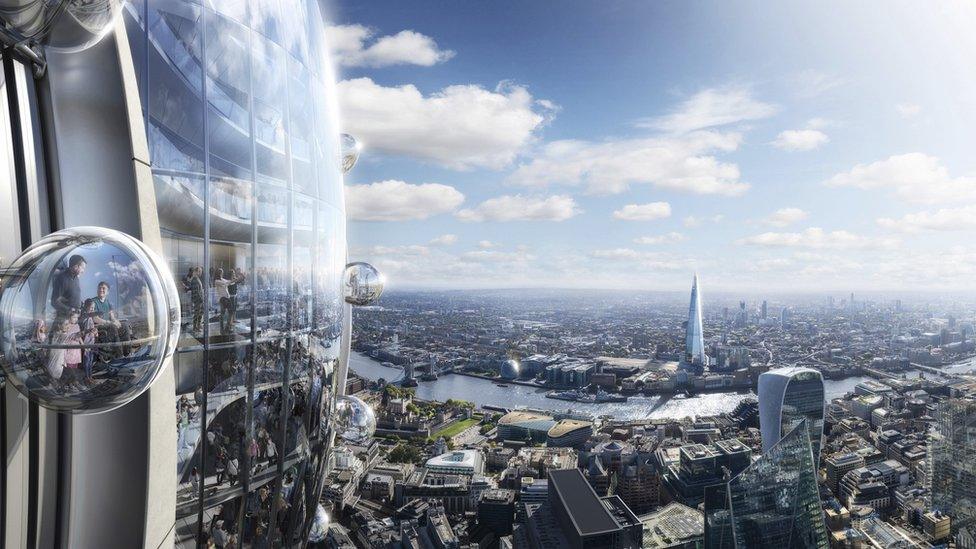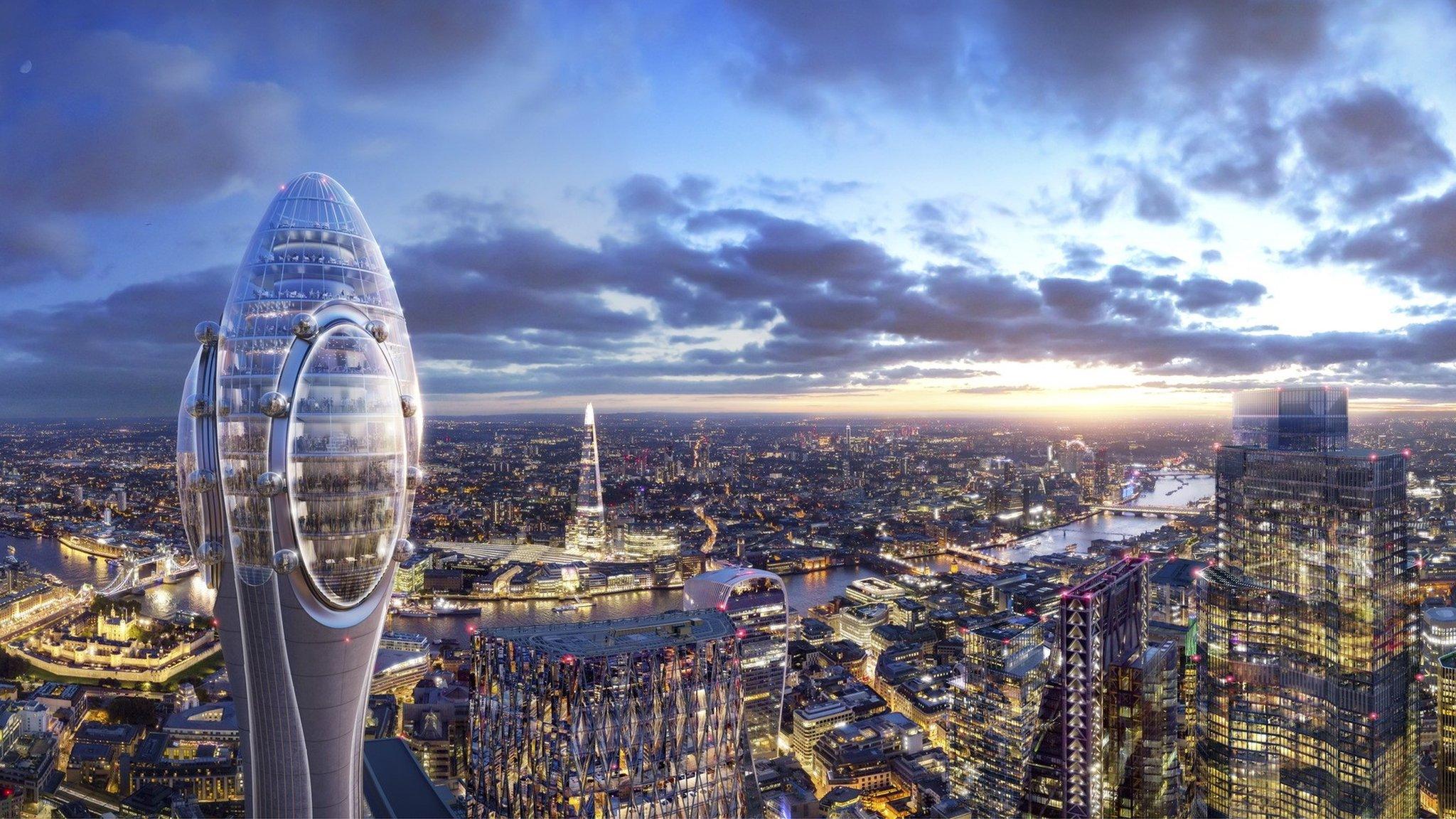Tulip skyscraper found to breach London Plan guidelines
- Published

Developers are hoping to complete the project in 2025
The 1,000ft (305m)-high Tulip tower which has been proposed for London fails to comply with planning guidelines, the mayor has said.
The skyscraper was found to breach the London Plan because it was not free for visitors and would "harm" protected views of the Tower of London.
If built, the tourist attraction would be the tallest in the City and feature internal slides and transparent pods.
The City of London is due to decide on planning permission for the project.

The building will be the tallest skyscraper in London's financial district
In a 15-page document, external, Greater London Authority (GLA) planners found the tower failed to follow the London Plan for several reasons.
Part of the London Plan calls for free access to public areas in tall buildings but most visitors to the flower-like tower would be charged an entrance fee.
The building was found to "harm" views of the Tower of London, while also creating a "confined" and "potentially unsafe pedestrian environment" around the bottom of the tower.
Planners also questioned the "highly distinctive design" saying it would "appear incongruous" in the location, while also calling its height "unjustified".
Norman Foster, whose company Foster + Partners designed the project, previously said the Tulip would be a "cultural and social landmark."

The transparent viewing pods will move around the outside top of the building
The London Plan, external is used as guidance for developments and the use of land within the capital.
Under planning regulations, Sadiq Khan had to provide a statement to the local authority, external about the proposal because of its height and position within the City.
Once City of London planners make a decision about the application, the proposal will again be referred back to the mayor who has the power to grant or refuse final permission.
A City Hall spokesperson said the mayor "recognises that there are a range of views regarding this application" and "will consider the scheme on its merits in due course."
- Published26 November 2018

- Published19 November 2018
